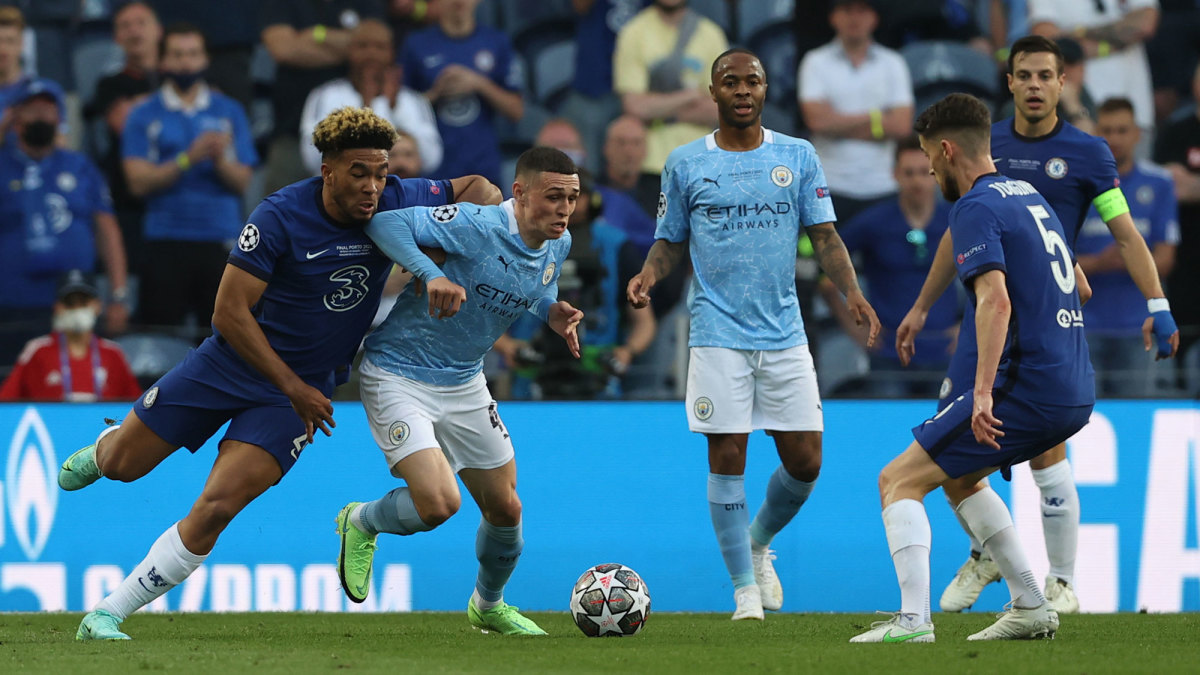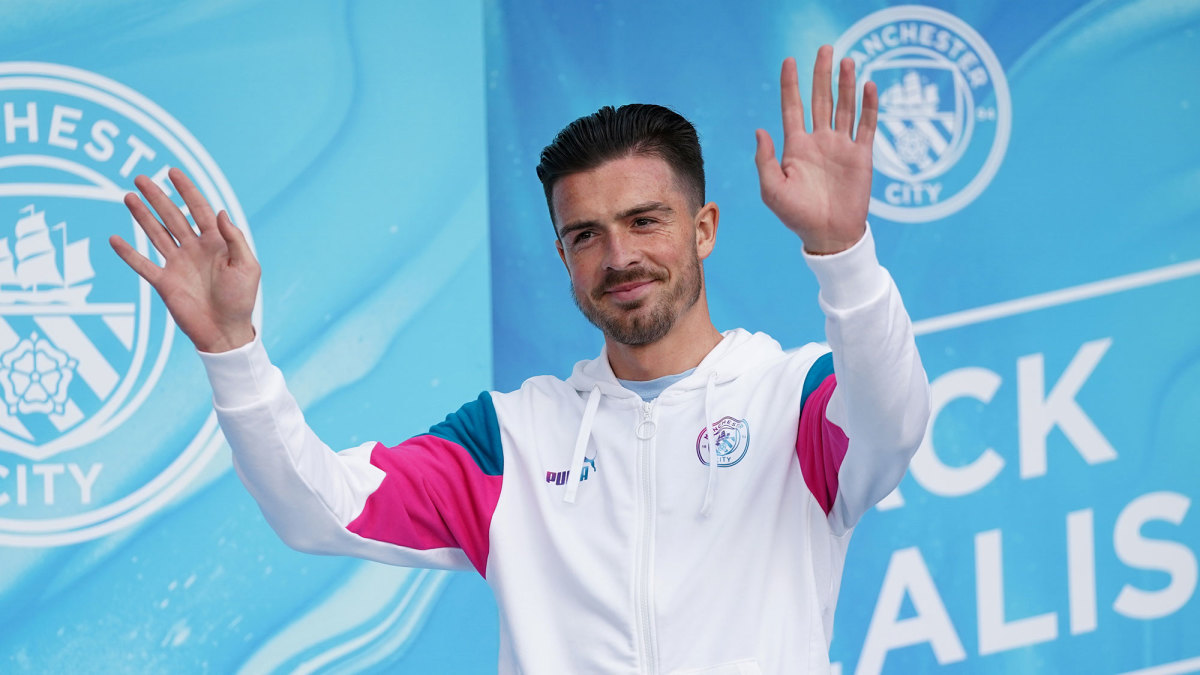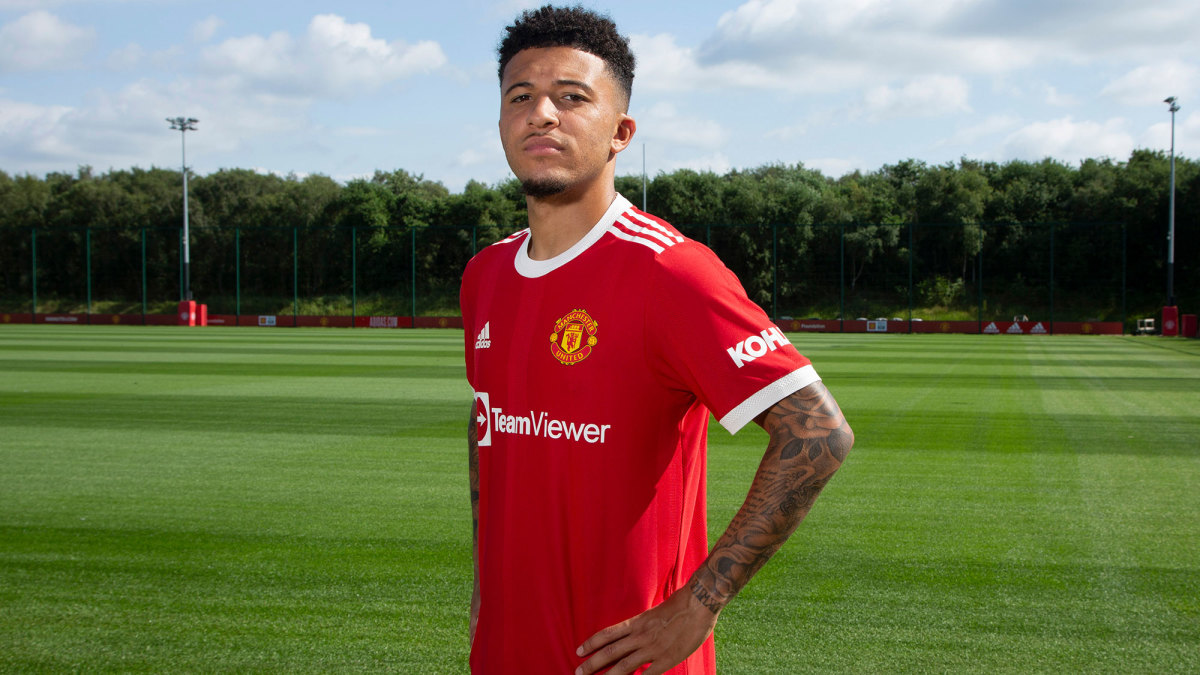Who Will Win the Premier League Title? Follow the Uncapped Money.

Crisis? What crisis? As the rest of European football has felt the pinch of the pandemic, Premier League spending—at least for three of the very biggest clubs—has gone on unchecked with Manchester City, Chelsea and Manchester United all doling out in excess of £100 million on players, and with the possibility of more to come. As Barcelona, Real Madrid and Inter Milan struggle to complete the sales that would allow them to bring in any new blood, this summer has been a startling assertion of the Premier League’s financial might.
There are good reasons for that—a more equitable division of broadcast revenues than elsewhere (although the biggest clubs are trying to change that) helps everybody, and also ensures a level of competition, which in turn has been a factor in making the Premier League the most watched league in the world—but they must come with caveats. The most obvious of them is that the money spent by Chelsea and Man City has very little to do with the league.

It felt apt that the four Champions League semifinalists last season were Chelsea, Manchester City, Paris Saint-Germain and Real Madrid. In March, Madrid lost an appeal in the European Court of Justice against a ruling that it had received illegal state aid. Man City and PSG are effectively owned by Abu Dhabi and Qatar, respectively, and Chelsea is owned by an oligarch. Madrid now is in trouble, but none of the other three is dependent on football for an income, even if Chelsea has made significant efforts to be self-sustaining.
And that, of course, was a key motivation behind the Super League proposal in the spring: An established elite realizing it was struggling to keep up with arrivistes who did not operate under the same financial constraints, forced into action by the exacerbating effects of the pandemic. All that matters then is how strict the financial regulations in your country are, and the Premier League’s are relatively lax, even if there is an ongoing wrangle with Man City that has already lasted more than two years.

The club has already spent $139 million on Jack Grealish, with a possible deal in the $200 million range for Harry Kane still on the wish list. With Sergio Agüero gone and Gabriel Jesus seemingly out of favor, the need for Kane would seem more pressing, but Grealish offers something a little different, a dribbler with a sense of anarchy who could perhaps help to break open tight games. That said, anarchy is not often something usually associated with Pep Guardiola sides, and there is the potential for tension.
Chelsea is spending a similar figure on Romelu Lukaku in the hope that he will correct its one obvious failing after the arrival of Thomas Tuchel: Struggling to convert possession and domination into an abundance of goals. If he can, Chelsea should be City’s main rival for the Premier League title. Chelsea did beat City three times in the second half of last season, across three competitions, but the doubt is whether it has quite the depth of squad to sustain a title challenge over the course of a full season.
Given its debt, Man United’s spending has been more of a surprise: $100 million on Jadon Sancho and $56 million on Raphaël Varane. That perhaps is a reaction to the fan protests against the Glazer family ownership that characterized the end of last season and at the very least expresses a confidence about the financial future of the club that must in part be linked to the decision to roll over the existing domestic broadcast deals for an additional three years without tender.

The two signings fill obvious gaps in the squad, and United should be stronger than it has been at any time since the retirement of Sir Alex Ferguson in 2013. This now is a test of Ole Gunnar Solskjaer’s management and whether he is capable of constructing a coherent attacking plan beyond playing on the break. With what he'll have at his disposal, there can be no excuses.
Then there is Liverpool, which has lost Georginio Wijnaldum to PSG and whose only signing so far has been center back Ibrahima Konaté. The Reds will have Virgil van Dijk back from his ACL tear, though, and surely can’t be as badly afflicted by injuries as it was last season (although left back Andy Robertson already is ruled out to start the season with an ankle ailment). The drop off in the contributions of Sadio Mané and Roberto Firmino last season must be a concern, but if they can rediscover their form, then Liverpool could also be a title threat again after scraping to a top-four finish last season.
"We are not blind. We see what others are doing. We just have to be able to beat them. We will try to do that," manager Jürgen Klopp recently said.
But unless trying is enough for Liverpool, or unless Solskjaer can achieve something remarkable with his new assets, this still feels like a battle between City and Chelsea—the two reigning Champions League finalists, the two clubs who exist outside usual financial constraints.
More Soccer Coverage:
